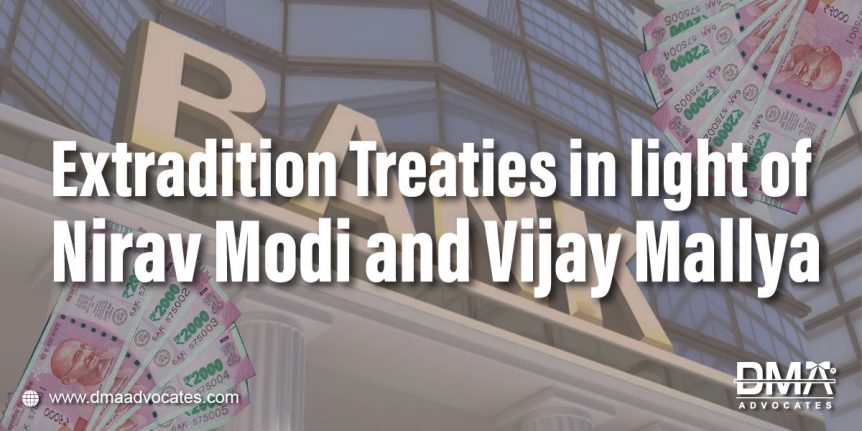Extradition Treaty implies an agreement or course of action made by India with an outside State identifying with the removal of outlaw offenders. Extradition Treaty contains the conditions that should be satisfied to proceed with the procedure of extradition and furthermore a rundown of violations based on which a criminal might be kept in the outside nation.
India presently has marked 42 Extradition Treaty with nations around the world to facilitate the procedure of removal. A portion of the countries is Australia, Brazil, UK, USA, and so forth. India additionally has nine Extradition Treaty plans with nations like Sweden, Singapore, Italy, and so forth.
Sections in CrPC dealing with the process of extradition are:
- Chapter 41- When police may arrest without warrant
- Section 166A- Letter of request to a competent authority for investigation in a country or place outside India.
- Section 166B- Letter of request from a country or place outside India to a Court or an authority for investigation in India
- Section 188- Offences committed outside India.
Strategy for Extradition
The underlying strategy for extradition includes:
The removal procedure is placed in movement by the receipt of data/order in regards to outlaw crooks needed in outside nations. The wellspring of data might be legitimately from the discretionary channel of the concerned country, General Secretariat of ICPO/Interpol as red notification or other settled methods of correspondence.
- After the demand/data is gotten, a judge is approached to convey forward the request in that specific case.
- After a point by point request, the judge will issue a warrant of capture against the outlaw.
- A formal solicitation by one sovereign country to another sovereign state is made based on the warrant.
- If the charged individual is discovered blameworthy in the nation where the solicitation for the equivalent has been made, the denounced might be captured.
- The nation that captures the blamed may subject him/her to the removal procedure where he/she might be extradited to the government who has made the solicitation.
- It is to be contemplated that the blamed is exposed to the laws for the country in which he/she is found.
Removal Laws in India
In India, the removal of an outlaw (blamed or sentenced) is administered by the Extradition Act, 1962. The removal of a criminal law relies on the bargains/shows/courses of action went into by India with different nations. Hence, the removal demonstration must be perused alongside the bargain/show/plan that India has with different countries.
It must be noticed that it isn’t essential to have the arrangement to remove an individual from India. On the off chance that there is no removal settlement made by India with any remote express, the Central Government may regard any show as a removal arrangement just to the degree of offences referenced in the show to which India and the outside nation is a gathering.
Examination offices are confident that there will be no deferral in getting criminal fugitive Nirav Modi removed to India since they have furnished UK experts with every one of the archives required and stopped each escape clause that can be misused by the resistance council. To remove another outlaw business head honcho – Vijay Mallya – acclimated them with the European nation’s removal methodology.
Nirav Modi, blamed for duping the Punjab National Bank of over Rs. 13,000 crores, had been held up at Her Majesty’s Prison Wandsworth in London.
Nirav Modi’s capture came days after a London court issued a capture warrant against him in light of a solicitation by the Enforcement Directorate for his removal in a tax evasion case. He and Mehul Choksi had both left India before the misrepresentation became known in January 2018.
Vijay Mallya had left India for the UK in March 2016, after various banks got together to start legal procedures against him to recuperate an exceptional due of over Rs. 9,000 crores. The removal procedures, which began in April 2017, are as yet in progress because the criminal specialist has tested the UK Home Secretary’s Extradition request in a higher court.


